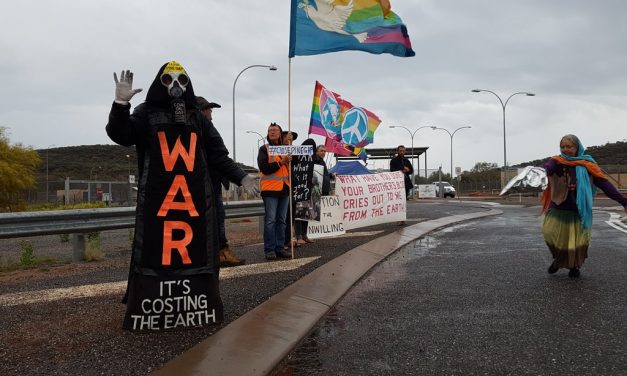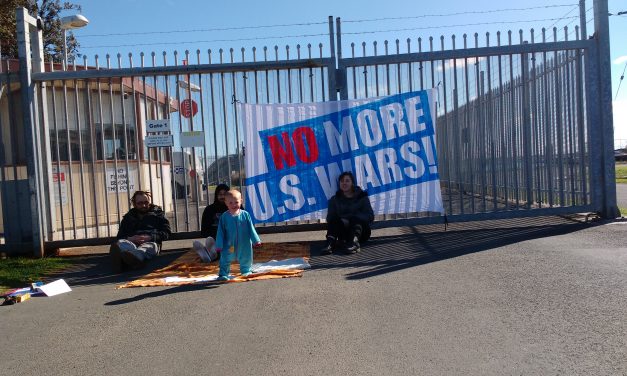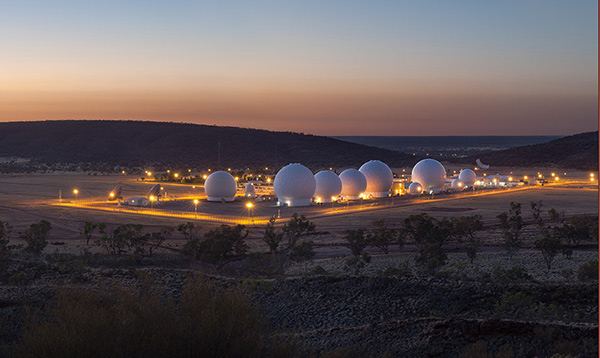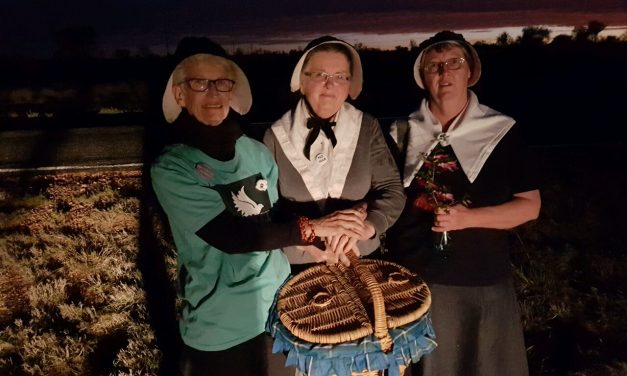Week of Actions to Close Pine Gap
The week long convergence at the gates of the Pine Gap US Military Spy Base south of Alice Springs continues to build, with several actions planned over the coming days leading up to a mass action on Friday at the gates of the facility.
Pine Gap is one of the largest and most important United States war fighting and intelligence bases in the world. The murder of individuals by US drone-based weapons, outside national and international law, is organised through the signal collection operations of Pine Gap.
US bases on Australia’s soil contribute to the US war fighting strategy. The bases assist the US to perpetrate wars against countries in our region and beyond and help swell the list of Australia’s enemies.
“The deployment of nuclear weapons is still a major threat to populations. The US hold approximately 15,000 nuclear weapons which are presumably aimed and targetted throughout the world at its ‘enemies’. Pine Gap is implicated directly in their deployment. This makes Pine Gap a potential target and implicates Australia in war crimes,” said organiser and member of the Disarm Collective Jacob Grech.
This morning, before dawn, the shift change was met at the gates by a group of protestors. As numbers swelled, by 7am buses were delayed from entering the facility for a short period.
One of the participants of this morning’s action said: “I am here to draw attention to the threat posed by this US army base to Australian citizens, built on land without permission or agreement from the Arrente nation traditional owners.”
In the lead up to Friday’s action, various actions will be taking place. At 4pm this afternoon an action will take place at the Hutt Road camp.
On Thursday 29th September a community bike ride will leave the Council Lawns in Alice Springs at 8am and ride 30 kilometers to the gates of the Pine Gap Facility, followed by Brunch Not Bombs at the gates at 11am.
“People from all over Australia and the world have gathered here this week to oppose the US war machine’s presence on stolen Aboriginal land” said Mr Grech. “The convergence has brought together a diverse range of people including members of anti-militarism, peace, faith and environmental groups. While the protestors are committed to non-violence, a diversity of tactics will be used throughout the week in a range of colourful and creative actions aimed at drawing attention to Australia’s complicity in US lead wars and invasions around the world.”
#closepinegap
Media contact: Jacob Grech ph: 0402 246 491



